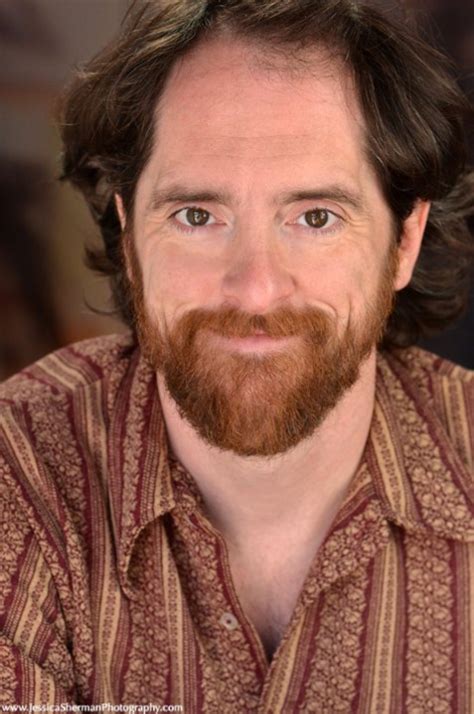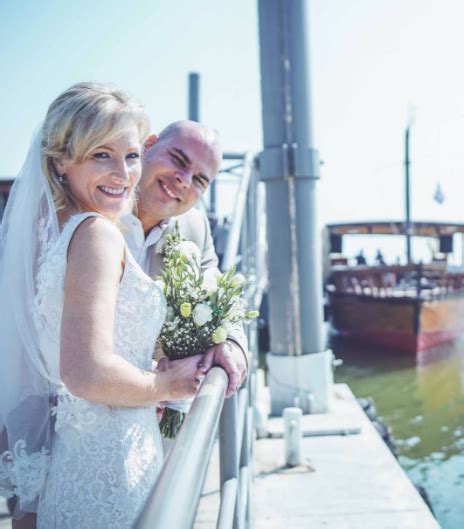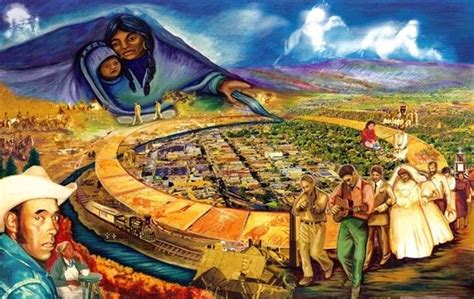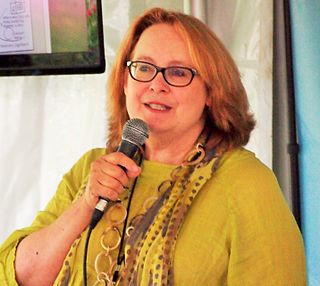A Quote by Ron Haviv
It's a lot more than clicking the shutter...it's the ideas, it's the visual voice, it's the telling the story, it's kind of going beyond that initial thing that just means you happened to be there at the right time.
Related Quotes
In fiction the narrator is a performance of voice, and it can be any style of voice, but I'm interested in the ways that a voice that knows it's telling a story is actually telling a different story than it intends to. In the way that I can sit here and tell you what I had for breakfast, but I'm really telling you that I'm having an affair, something like that. And I don't think my writing is plain, but I think a lot of my characters are just talking. There is vulnerability there, in that we can start to see through them, we can start to see where they're deceiving themselves.
I believe that the greatest music is storytelling anyway, in a heightened medium. So I write a lot of music, and I play a lot with my guitar, I still sing a lot, but now I'm more personal about it than public, in a way. I think there will be a time where I'd like to bring the singing back into some of my performances. It all depends if the material's right, if the story's right, if it's my kind of taste in music, as well. It means so much to me. We all know how affective music can be, I just want to make sure when I do it, I'm doing it because I actually feel it and I care about it.
I really don't want to produce artwork that does not have meaning beyond simple decorative values. I want to use public space to create a public voice, and a public consciousness about the presence of people who are, in fact, the majority of the population but who are not represented in any visual way. By telling their stories we are giving voice to the voiceless and visualizing the whole of the American story.
Any kind of sequence when you have to express physical space and time can be difficult to story-tell because, if you're sitting there watching it like it's a play or something, your mind can track what's going on, or if you're watching an actual fight you can kind of track what's going on, but as soon as you have to start telling the story and tracking for the audience, it becomes much more complicated.
And one day, this thing happened to me: I coughed, and the blood just came gushing out of my mouth. ... I still can't believe that that happened to me, but I sat there, and I said to God, 'Well, if it means I'm going to die, that's OK.' I don't think I've ever felt that same kind of peace, the kind of serenity that I felt after acknowledging that maybe I was going to die of this TB.
Something may have happened before, and yet this thing that happened just after may be so important that you don't even know about the thing that happened before and when you tell your story to yourself, or to someone else, it's going to be told not on the basis necessarily of the time course, but rather on the basis of how it was valued by you.
There's a kind of luck that's not much more than being in the right place at the right time, a kind of inspiration that's not much more than doing the right thing in the right way, and both only really happen to you when you empty your heart of ambition, purpose, and plan; when you give yourself, completely, to the golden, fate-filled moment.
You know, an idea is just an idea. There seems to... the kind of epiphanies that you have, like the little sudden bursts of light, they're very small and they're very short and it's the pursuit of the idea that's the important thing. . . . I know a lot of people who have way better ideas than I do that-much more frequently than I do that just can't sit down and actually do it. Ideas are such are a little overrated really; it's the work behind the idea that's the important thing.
Love is the most powerful thing of all and I remember thinking that - God, I'm about to make myself cry but, I remember thinking that when 9/11 happened because those last phone calls were about - the last thing knowingly, that I'm going to say on this earth is "I love you". What's more powerful than that? What's more proof than that? Beyond fear, beyond death.
































